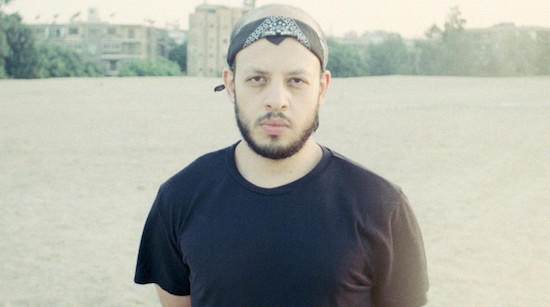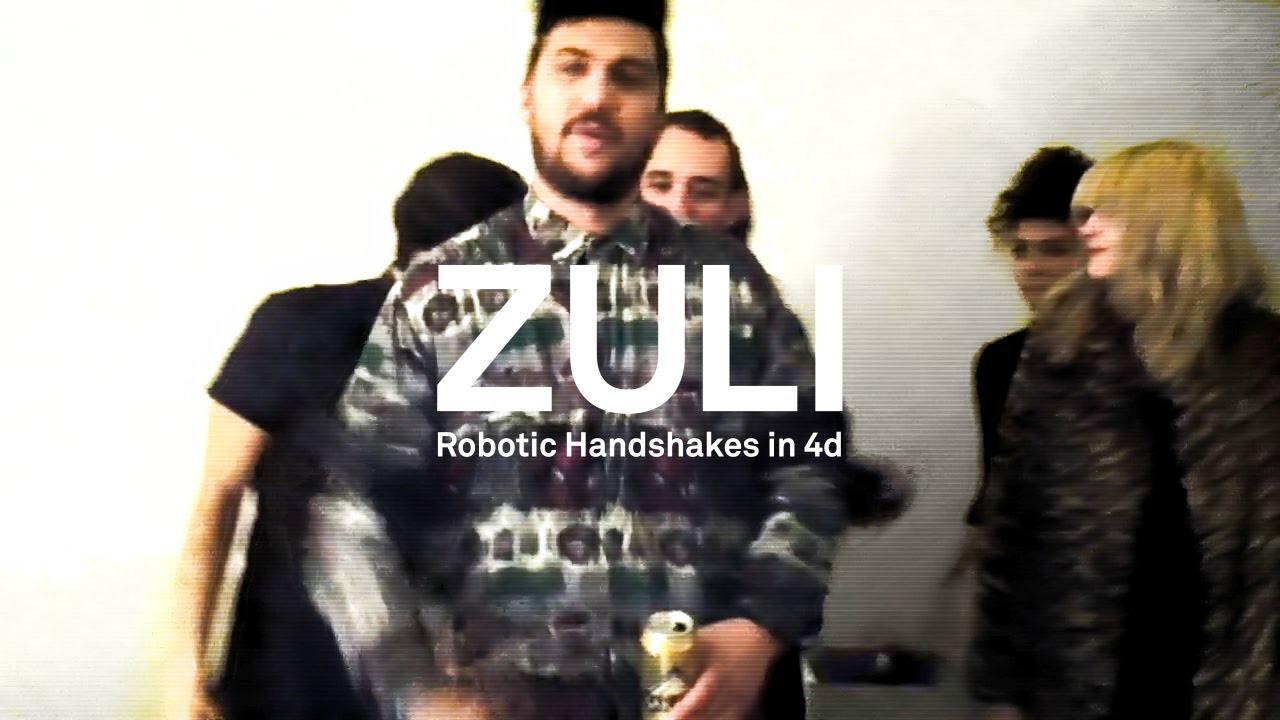Musical histories are often stories shared with wry smiles. Tales of “bad taste,” whatever that means, are relayed somewhat begrudgingly. Old musical flames become embarrassing anecdotes, and what once constituted pleasures get relegated to guilt status.
It’s almost surprising to hear about artists’ seemingly unlikely past ventures. But we all have them, after all. While ZULI relays certain tales sheepishly, he’s visibly animated when talking about rap, which comes as no surprise on Terminal. His debut full-length on Lee Gamble’s UIQ label marries swampy basslines with slinky vocal delivery courtesy of rappers like Abyusif. Gut-wrenching trap flirtations meet delicate, alien melodic arrangements. In ‘Bump’, a highlight of the album, distorted synths flutter amidst sub tremors and rapid-fire vocals.
At the other end of the spectrum is the sparse and curiously melancholic ‘Stacks & Arrays’, which veers into more melodic territory than what we’re accustomed to from ZULI, also heard on the beautifully arranged ‘Kollu I-Joloud’ with MSYLMA. Across the record, he continues to sculpt his particular, uncanny, bass-inflected sonic world through adroit manipulations of samples and space, going down deeper wormholes than ever before.
In between a slew of performances and the release of his record, ZULI catches up with tQ to chat about his musical background, love for the internet, and discontent with aspects of the music industry.
You’ve mentioned some frustrations with music’s reliance on press cycles, could you elaborate a bit?
ZULI: I understand that people need stuff to write about, and I don’t mean to put all the blame on journalists – they’re just following whatever hot topics are out there. I don’t want to sound cynical, but this exoticisation of our part of the world is a recurring theme. And when I say our part of the world, that’s really broad, but it happens more often to non-European, non-American places. I get where it’s coming from, but I just feel like we’re individuals. Just because we’re from somewhere specific doesn’t necessarily mean anything. Even if I’m billed on a lineup as the Egyptian guy, I think you can listen to my music and have it not be “Egyptian.”
In a broader sense, the more time I spend “in the industry,” the more apparent it is that everyone’s dissatisfied with it. In an ideal world, what would you imagine the relationships between artists and press to be more like?
Z: In a completely ideal world, it would be to focus more on the music. I do feel like nowadays, it’s more about the story behind the musician than the music itself. The music always comes last, and the story always comes first.
On that note, let’s talk about Terminal. In parts, it’s slightly less beat-driven than Trigger Finger [on Haunter Records] or even [the UIQ-released] Numbers. Was that intentional? Could you tell me a bit more about that trajectory?
Z: The melodic stuff on there is actually a bigger part of what I do. At a certain point last year, I realised that I’d never released any of that material, and everything else out there was more or less on the club or experimental side of things. I had potentially an album’s worth of material and I always go to Lee Gamble first when I have anything. He said it was perfect timing, and agreed that it’d be good for me to share that side of what I do.
I had a gig in London around that time, and we met up and talked about it, deciding that it wouldn’t be 100% that material, but just whatever came naturally in the next months. I don’t think any of the original tracks I mentioned made it on the album. I worked on it for 10 months, and I guess my entire process in Cairo is what informed it. Of course, that’s just my experience; Cairo can be a million different Cairo’s depending on who you are and what your lifestyle is like. So the stuff that emerged was more melodic and emotional, and there’s rap in there too because I love it. I think there’s a good, honest representation of my output.
You mentioned that the “melodic stuff” is more of what you do. Why has the stuff you’ve been releasing so far been more clubby or experimental?
Z: I guess that’s just the scene we operate in. I think the clubbier stuff is easier to get around, and there’s more of an interest in that. That’s not to say that there’s no interest in the other stuff, but it has to do with specific things that people want to hear. For me, as an Arab male, you’d expect certain things from me. People meet you and expect certain world, political and religious views. If what you say disillusions them a bit, well, I’ve learnt just to not talk about stuff because I end up baffling people.
Is there a similar frustration that led you to release something a bit different?
Z: I don’t think I let it inform what I do musically, Terminal is just what I’m making now, and I wanted to release it. It’s as simple as that. I wish the whole industry was that simple, like, “I’m making this music now and releasing it; what do you think?” That, as opposed to, “oh this person comes from post-revolution Cairo, and blah blah about suffering,” I mean, come on.
To return to the music again, I’ve noticed that sampling is a big part of what you do – could you tell me about what draws you to it?
Z: I could go on about the Ableton Sampler for ages. It can mould sounds in so many ways; it’s my favourite instrument. Sampling technology is very much a tool that helps you express yourself, you can mould things into something totally different. I also love synthesis, don’t get me wrong – I did a residency at EMS in Stockholm, where I was in that room with a big Buchla alone for a week, and I’ve got 10 hours or so of recordings from it. There is quite a bit of synthesis on the record too, but there’s just this organic feel about sampling.
After dabbling as a DJ for a bit, I got totally into Nine Inch Nails, and then even more pop stuff. I just really like the organic quality of those sounds. Synthesis can sound a bit artificial to me – kind of alien, but that’s also cool. When I first started out, I never used to use synthesis without distortion. You grow to love it.
You mentioned DJing and that being one of your first ventures into music. How did you end up in the dance music world, and what drew you to it?
Z: Clubbing as a teenager. I’m the kind of person who always wants to know how things work, and when I first saw DJs playing, I was like, “what? How are they playing entire songs?” As I learned what DJing was, I thought, “let me give it a try.” My cousin was friends with this big Egyptian DJ and put us in touch. He ended up teaching me how to beatmatch.
That was around the year 2000. Napster was a thing, as well as other services where you could download MP3s. You couldn’t buy these CDs in Egypt; there was no such thing as legal downloads, not that Egyptian banks would let you use your credit card online until 2007 or so anyway. That’s how I got into it, just going out to clubs. I was also into Limp Bizkit, who had a really cool DJ. I thought if I learned how to DJ, that maybe I could also learn how to scratch. That’s what really drew me in.
I was also a young promoter, and I said to one of the artists I booked, “listen – I also DJ, what do you think? How could I make it on a tour like you?” And the answer was, “if you want to make it in the scene, you have to start producing.” I had no idea about anything, so I thought if I wanted to start learning production, then I’d have to learn an instrument. I broke out a bass guitar, then my interests shifted completely to guitar music. From 2004 onwards, I stopped DJing. I’d been doing these monthly mixes, and then stopped doing them for around ten years.
What kind of stuff was on them?
Z: Really embarrassing stuff, I was into the whole global underground Sasha & John Digweed stuff. I was massive on that. There was that progressive house stuff, as well as Parisian electro wave stuff. I was into artists like Digitalism and Klaxons, who were my entry back into guitar music. I wanted to start a band like that for a while, but failed.
So what made you return to dance music again?
Z: The guitar music I used to make still had a lot of electronics in it. The further I got into it, the more experimental these parts were. I kind of came back to electronic music from an experimental angle. I discovered labels like PAN while I was also doing Wonderful Morning, a synth pop/new wave kind of thing, which involved a lot of synth work. I think those things together, alongside opening this venue VENT, formed the basis of that. I had to find out what was going on with dance music in 2013, and I think it was Lobster Theremin who got me back into dancefloor music. I just started playing that lo-fi house [laughs].
You also mentioned with your love of rap, which is of course a massive part of sampling’s history. Could you tell me a bit about the impact that rappers have had on you?
Z: I’ve always been into rap beats, but it was when I started producing for rappers and looking at things from the MC’s point of view that I became really fascinated. I’m a sucker for multi-syllable flows, my jaw drops every time. Three syllables or more – MF Doom is great with that. Rap patterns, double-entendres, lyricism and writing are absolutely fascinating. So I’ve been working closely with rappers, such as Abyusif, whom I believe is the best Arabic rapper in history. Seeing rap from his perspective, and working with him was what got me really into rap.
Did you ever explore that yourself?
Z: I mean yeah, of course [laughs]. We’d sit down and freestyle and stuff. We did one track that’s on YouTube, but it’s under a different name. It’s embarrassing, but I still have crews from the Arab rap world hitting me up like, “sick verse man, wanna feature on my track?”
How did you end up focusing more on production instead?
Z: I never really meant to be a rapper, it was just part of hanging out. Between 2010 and 2012, all we did all day was sit down, make beats and freestyle. I never took it seriously, besides, I’m too old for a rap career now.
It seems like working with others has always been a big part of what you do.
Z: Yes and no. In hindsight it seems like it, but also going solo was the best thing I ever did. I never did loads with my collaborations. I DJ’d a lot as a teenager, tried for years to form a proper guitar band, like my own Nine Inch Nails. My brother’s a drummer, and god bless him, he stuck around with me. But besides that, we couldn’t find anyone. I ended up forming a band called Wonderful Morning with Asem who runs [Cairo club] VENT with me; he also releases under $$$TAG$$$ and put something out on SEAGRAVE last year.
So it was this electro, new-wave ’80s kind of thing. Then we had a band called VENT (not to be confused with the venue). There was another project, and then the Abyusif stuff. After that, I went solo and focused on me. Collaborations are great when it comes to the creative part, but when it comes to everything else, it’s very difficult to be on the same page, be excited at the same time, and have the same level of motivation.
When I went solo and I could be in charge of everything myself, that’s when stuff started taking off, and I was able to rely on music as my main source of income and all that.
I guess I was also thinking of the non-musical stuff you’ve been involved with, like VENT and Awesome Magazine. What kept you doing all this stuff?
Z: They all have their own stories. The magazine was something that me and Asem always wanted to do. We met this awesome designer, and we decided to do a print magazine, which was a massive mistake. We wrote about politics and films, we did interviews and all that. It was really niche, I wrote about music that no one ever cared about. We never got ads – Asem had some money, and eventually it ran out.
At the same time, we were musicians, and no one would book us. There were like 3-4 acts that we knew, and none of us would ever get booked. When the magazine went bankrupt, we were doing the paperwork with our lawyer, who represented this guy who was running a club that was doing really badly. We were interested, and we wanted to be the venue who would book the people like us. We were lucky to find that place, the guy was seriously desperate, and let us do whatever we wanted.
We’d lose money most nights a week, and make it up one or two days on the weekend. Throughout the week, we’d book people like us who had no following. The average number of attendees for a live show was seven or eight people. Of course you have to pay for backlines, and we made it a point to always pay the artist. We had a great run for a year or two, we debuted like 40 artists who have gone on to do cool stuff. The people who owned the actual building, their grandson wanted in on it and had a completely different plan for it.
What was it like to see that progression?
Z: It was great. It felt like I was finally doing something. We met lots of really great people, and we saw them develop a lot. Finally being in an artistic community obviously helped with our own artistic growth. I’m sure they would’ve done it without us, but I feel lucky to be in contact with them, and it’s inspiring, really. They’re really great, and I wouldn’t have met them otherwise.
Has operating online on platforms like SoundCloud had a big impact on you and your involvement in music?
Z: Absolutely. I don’t know why, but everyone always talks shit about SoundCloud. I always hit up producers with little following who make amazing music, I’ve discovered so much music. It’s great. I’m a big fan of the internet, if that’s not clear already. One of the collaborations on Terminal is with MSYLMA, this entity that exists on the internet. While Abyusif and I were working out of the same space, and we’d see each other every day, the other ones I just know through the internet. We’ve only met them in person a couple of times.
ZULI’s debut LP, Terminal, is out now on UIQ. You can purchase it here




